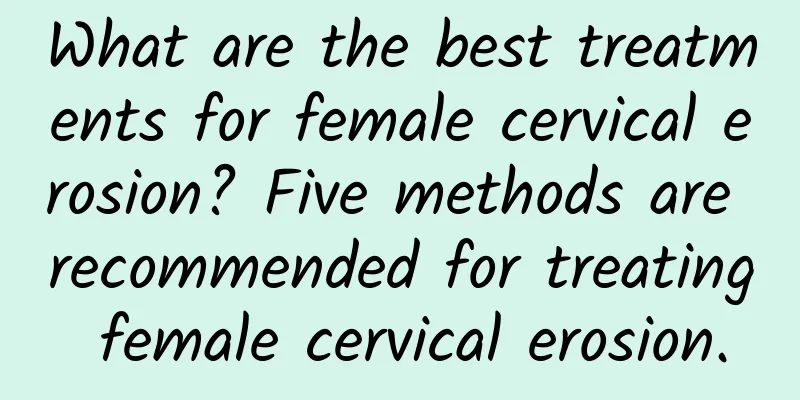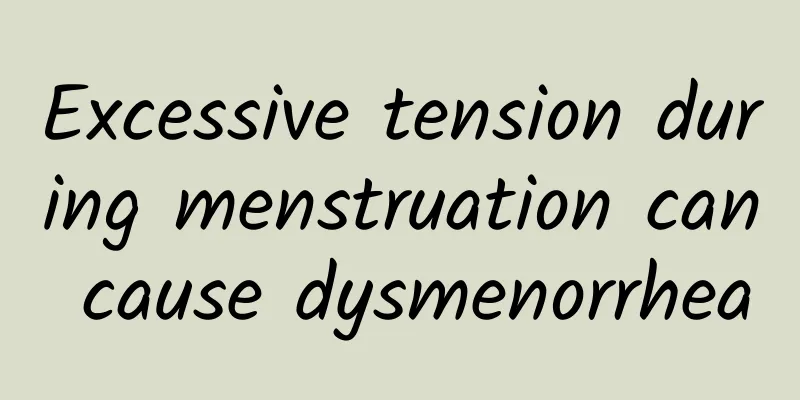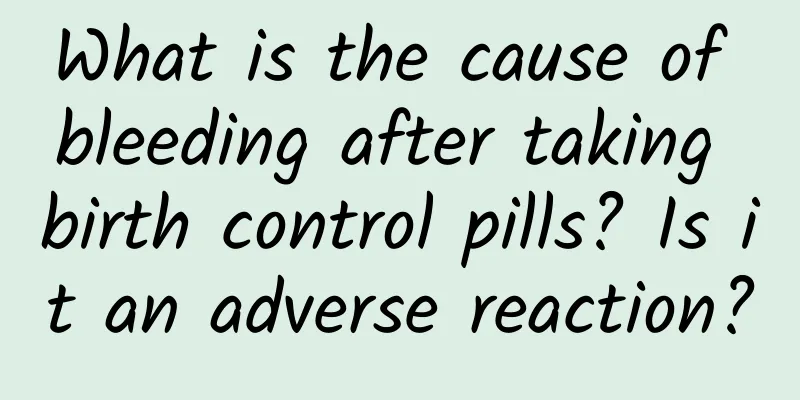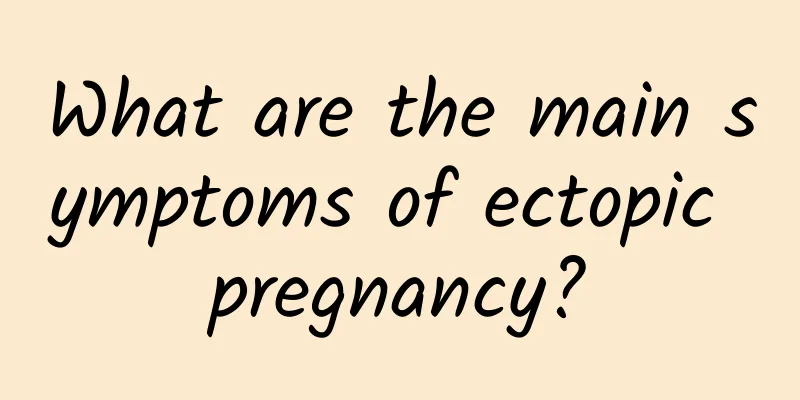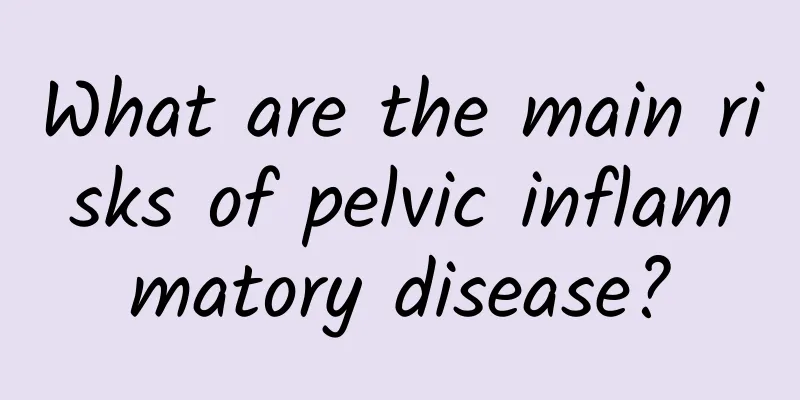Can submucosal uterine fibroids be treated with medication?

|
Submucosal uterine fibroids usually cannot be completely cured by drug treatment alone. Although drugs can relieve symptoms or shrink fibroids to a certain extent, they cannot completely remove them. The treatment method depends on the size of the fibroids, the severity of symptoms and the patient's fertility needs. A comprehensive method such as drug relief combined with surgical treatment can be selected. 1. Drug treatment: suitable for mild symptoms or preoperative preparation (1) Hormone drugs For example, gonadotropin-releasing hormone agonist (GnRH-a) can reduce endometrial thickening and shrink fibroids by inhibiting ovarian hormone secretion. This drug is mainly used for preoperative preparation, reducing the difficulty of surgery, or temporarily relieving symptoms such as menorrhagia, but it may cause side effects such as hot flashes and osteoporosis, and needs to be used for a short period of time. (2) New endometrial inhibitors Mifepristone, for example, can reduce progesterone, inhibit endometrial proliferation and shrink fibroids, but it cannot eradicate fibroids. It is often used for symptom management and anemia improvement. However, long-term use may cause problems such as menstrual disorders. (3) Nonsteroidal anti-inflammatory drugs (NSAIDs) and iron supplementation Used to relieve pain and anemia caused by heavy menstruation. If symptoms are mainly heavy menstrual flow and fatigue, combined with iron supplements, it can improve quality of life. 2. Surgical treatment: the preferred option for severe symptoms When medication cannot control the disease or the fibroids are large and the symptoms are obvious, surgery is often a more effective treatment, especially when the submucosal uterine fibroids grow into the uterine cavity, causing menstrual disorders or recurrent miscarriages. The following are common surgical options: (1) Hysteroscopic surgery Hysteroscopic removal of fibroids involves minimal trauma and quick recovery. It is suitable for cases where the fibroids are small and protrude into the uterine cavity. It is the first-line option for treating submucosal uterine fibroids. (2) Laparoscopic or open surgery For larger or more numerous fibroids, laparoscopic or open removal can be chosen, and if necessary, combined with myomectomy to preserve the uterus. (3) High-intensity focused ultrasound (HIFU) Non-invasive ablation of fibroids is a new option for women who want to have children, but the results currently vary from person to person. 3. Daily life conditioning and precautions (1) Maintain a healthy diet: Eat more foods rich in iron and vitamins, such as spinach, lean meat and soy products, and avoid spicy and greasy foods. (2) Moderate exercise: such as jogging, yoga, etc., can help strengthen the body and improve immunity. (3) Regular physical examinations: If you have a history of fibroids, you should have an ultrasound examination every six months and pay close attention to any changes. Submucosal uterine fibroids are difficult to cure with drugs alone, and drugs are mostly used to relieve symptoms or for preoperative preparation. It is recommended to choose an appropriate treatment plan according to the condition, seek medical treatment in a timely manner and communicate fully with the doctor to obtain personalized treatment guidance. |
<<: How long does it take to walk normally after treatment of Bartholin's gland cyst?
>>: What are the causes of threatened miscarriage?
Recommend
Can ovarian cysts be prevented?
Can ovarian cysts be prevented? The ovary is one ...
CT manifestations of various types of uterine fibroids
Uterine fibroids are the most common benign tumor...
Introduction to Western Medicine Treatment of Cervical Hypertrophy
In life, cervical hypertrophy has affected the no...
The emergence of many factors can easily lead to cervical erosion
Cervical erosion is a major gynecological disease...
What to do if you have cervical erosion during pregnancy? Five health care measures to cure cervical erosion after pregnancy
Pregnancy is a big event for a family, but if cer...
How to treat chronic cervicitis in women? Pay attention to these matters when treating chronic cervicitis
Chronic cervicitis is a common disease among wome...
Does irregular menstruation affect pregnancy? What are the causes of irregular menstruation?
Menstruation is also called period, aunt, etc., a...
Will the stomach hurt after miscarriage? Check out the following content
Women must take good care of themselves in the ea...
Is chicken breast a must-eat for weight loss? 3 health benefits of chicken breast, 4 steps to cook it to make it delicious and not dry
Chicken breast, which is low in fat and high in p...
Do multiple abortions lead to endometrial hyperplasia? How can women prevent endometrial hyperplasia?
Endometrial hyperplasia is mainly caused by repea...
Does pelvic inflammatory disease cause dysmenorrhea symptoms in women?
Will female pelvic inflammatory disease cause dys...
What are the treatments for adnexitis and moderate cervical erosion?
What are the treatments for adnexitis and moderat...
Is moderate cervical erosion easy to cure? Complete list of treatments for female cervical erosion
We all know that cervical erosion is divided into...
The colder your body is, the more fat accumulates! Get rid of the cold and lose fat with these two tricks
Many people believe that obese people have higher...
What are the causes of irregular menstruation in women? What are the symptoms of irregular menstruation in women?
Irregular menstruation in women mainly refers to ...
